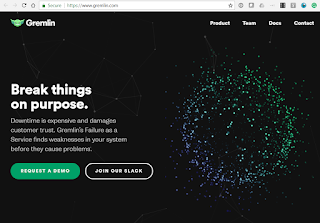 The FCC voted 3-2 along partisan lines to adopt the "Restoring Internet Freedom Order" proposed by FCC Chairman Ajit Pai to rollback Obama-era Net Neutrality rules. Voting in favor of the order were Republicans Ajit Pai, who argued that measure will usher in a new era of investment for Internet infrastructure. Also voting in favor were Republicans Michael O'Rielly and Brendan Carr. Voting against the measure were Democrats Mignon Clyburn and Jessica Rosenworcel.
The FCC voted 3-2 along partisan lines to adopt the "Restoring Internet Freedom Order" proposed by FCC Chairman Ajit Pai to rollback Obama-era Net Neutrality rules. Voting in favor of the order were Republicans Ajit Pai, who argued that measure will usher in a new era of investment for Internet infrastructure. Also voting in favor were Republicans Michael O'Rielly and Brendan Carr. Voting against the measure were Democrats Mignon Clyburn and Jessica Rosenworcel.FCC Chairman said that by returning to the classification of Internet services as an “information service”— removing the current Title II regulatory regime that gives the FCC say over the delivery of Internet content — the new order returns the industry to the status quo prior to 2015.
The vote proceeded despite an urgent request from the Attorney Generals of 18 states urging a delay to the vote due to a criminal investigation into possible fraudulent manipulation of the FCC's public comment process for this issue. In a public letter to FCC Commissioners, the Attorney Generals said their ongoing review of the public comments process has revealed a large number of fake comment submissions using the names and identities of real people. The initial assessment is that there were over 1 million fake comments indicating a deliberate effort to skew the public comment process on an issue of national importance. The Attorney Generals are also requesting the help of the FCC in their investigation of "massive identity theft."
President Trump Picks Pai for FCC Chairman

President Donald J. Trump designated Ajit Pai as his choice to be Chair of the FCC. Ajit Varadaraj Pai was nominated for FCC Commissioner by President Obama in 2011. Pai took over the seat abandoned by Meredith Baker who left the FCC to take a job as a lobbyist for Comcast. Pai was previously a Partner in the Litigation Department of Jenner & Block LLP. Previously, Pai worked in the Office of the General Counsel at the Federal Communications...
FCC Votes 3-2 to Adopt Open Internet Rules
 The Federal Communications Commission voted 3-2 to adopt a new set of Open Internet rules proposed by Commissioner Wheeler and backed by the Obama Administration. All of the new rules, which are based on the FCC's authority under Title II of the Communications Act of 1934, would apply to fixed and mobile broadband alike, while leaving room for reasonable network management and its specific application to mobile and unlicensed WiFi networks.
The Federal Communications Commission voted 3-2 to adopt a new set of Open Internet rules proposed by Commissioner Wheeler and backed by the Obama Administration. All of the new rules, which are based on the FCC's authority under Title II of the Communications Act of 1934, would apply to fixed and mobile broadband alike, while leaving room for reasonable network management and its specific application to mobile and unlicensed WiFi networks.Here are the key provisions and rules of the Open Internet Order as outlined by the FCC:
Bright Line Rules: The first three rules ban practices that are known to harm the Open Internet.
- No Blocking: broadband providers may not block access to legal content, applications, services, or non-harmful devices.
- No Throttling: broadband providers may not impair or degrade lawful Internet traffic on the basis of content, applications, services, or non-harmful devices.
- No Paid Prioritization: broadband providers may not favor some lawful Internet traffic over other lawful traffic in exchange for consideration of any kind—in other words, no “fast lanes.” This rule also bans ISPs from prioritizing content and services of their affiliates. It also prohibits practices that target specific applications or classes of applications.
The FCC's Wireless Telecommunications Bureau has ended its investi


















